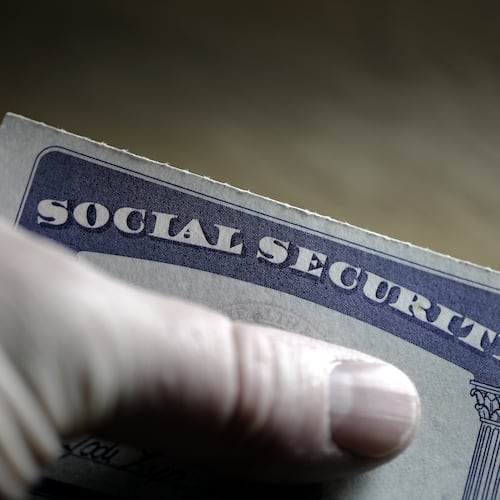President Joe Biden reiterated his goal Tuesday night of reopening most of the nation’s elementary schools by the end of his first 100 days in office.
Biden’s comments, during a CNN town hall in Milwaukee, marked his clearest statement yet on school reopenings. Biden had pledged in December to reopen “the majority of our schools” in his first 100 days but has since faced increasing questions about how he would define and achieve that goal, with school districts operating under a patchwork of different virtual and in-person learning arrangements nationwide.
Biden’s press office came under fire earlier this month when aides said schools would be considered open if they held in-person learning just one day a week.
“I said open a majority of schools in K through eighth grade because they’re the easiest to open, the most needed to be open in terms of the impact on children and families having to stay home,” Biden said, calling those comments from White House press secretary Jen Psaki “a mistake in the communication.”
Asked when the nation would see kindergarten through eighth grades back to in-person learning five days a week, Biden said, “We’ll be close to that at the end of the first 100 days.” He said he expected many schools would push to stay open through the summer, but suggested reopening would take longer for high schools due to a higher risk of contagion among older students.
The town hall touched on a range of issues related to the coronavirus pandemic, from protections for small businesses to the administration’s vaccination plans. Biden said by the end of July there would be 600 million doses of the vaccine available, enough to vaccinate every American.
But with many of his answers, he sought to emphasize the need for funding to achieve his goals. The town hall was aimed at selling his $1.9 trillion coronavirus aid package directly to the American people, part of an effort designed in part to put pressure on Republican lawmakers and refocus Congress on speedy passage of the bill now that his predecessor’s impeachment trial is behind him.
During the town hall, Biden also offered a flavor of the moderate stance that helped win him purple states including Wisconsin in 2020. He resisted a questioner’s request for his administration to embrace the progressive goal of forgiving $50,000 in student loan debt, reiterating his commitment to forgiving $10,000. He suggested one of the ways to improve policing was to provide more funding to police departments, running counter to calls from some progressives to defund the police. He also said he was optimistic about passing legislation to study police reforms.
He also weighed in on the immigration bill his administration is expected to unveil this week. Biden affirmed that a pathway to citizenship for undocumented immigrants is essential for any bill he’ll support, but also suggested he’d be open to a piecemeal approach to immigration reform rather than a comprehensive bill, if necessary.
“There’s things I would do by itself, but not at the expense of saying I’m never going to do the other,” he said.
Biden stressed that his massive virus aid bill already has broad public support and noted some analysts have argued in favor of significant government spending to help boost the economy.
“Now is the time we should be spending,” Biden said. The House is expected to vote on the measure next week.
Biden landed on a slick, snow-covered tarmac to below-freezing weather about 90 minutes before the evening program. He took questions from a small audience of Democrats, Republicans and independents invited for a small, socially distant gathering at the historic Pabst Theater.
Biden’s trip to Wisconsin, a political battleground state he narrowly won in November, comes as coronavirus infection rates and deaths are falling after the nation endured the two deadliest months so far of the pandemic. The White House is also reporting an increase in the administration of vaccines throughout the country after a slow start.
But Biden has stressed that the nation still has a long road ahead as thousands of Americans die each day in the worst U.S. public health crisis in a century. The virus has killed more than 488,000, and newly emerging variants are complicating the response effort.
The Biden administration is trying to get enough Americans vaccinated to achieve “herd immunity” and allow life to return to a semblance of normalcy. But it’s unclear when the vaccination will be widely accessible to Americans.
Biden’s team hopes funding provided in the coronavirus aid bill will help accelerate vaccination production and distribution. His team also argues that the federal government must keep open the spigot of government relief to help people who are suffering economically and to get the country back to pre-pandemic employment levels.
But many GOP lawmakers continue to bristle at the price tag of a package that calls for sending $1,400 checks to most Americans as well as assistance for businesses, schools, and homeowners and renters.
The Associated Press contributed to this report.
About the Author
The Latest
Featured



